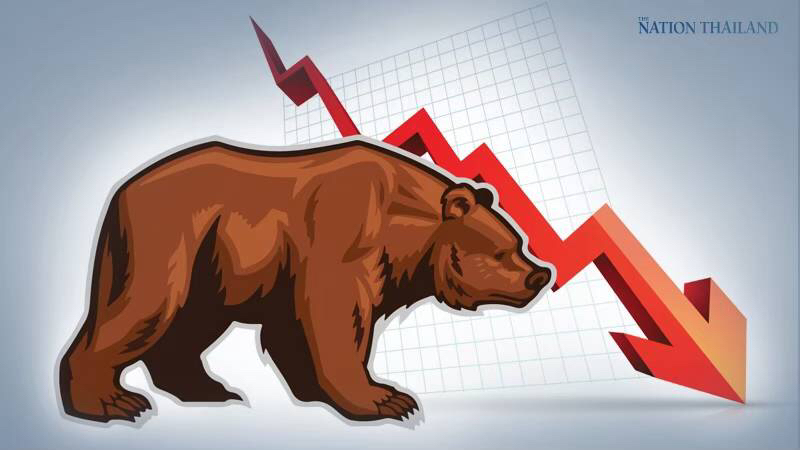Dow tumbles 730 points as covid-19 flare-ups force states to push back reopening

Rising coronavirus infections roiled investors on Friday, sending stocks into a sharp decline as big-economy states like Texas and Florida put a pause on reopening to stop the disease's spread.
The Dow Jones industrial average slid 730 points, about 2.8 percent, to close at 25,015.55. The Standard & Poor's 500 fell 2.4 percent, to 3,009.005, while the Nasdaq composite dropped 2.6 percent, to 9.757.22
All three indexes ended the week at a loss, with the Dow erasing 3.3 percent and the S&P 500 down 2.9 percent. The Nasdaq shed 2 percent over the five-day run but remains positive for June and 2020.
All 11 sectors of the S&P were in the red, weighed down by financials, energy and communication services. Facebook shares plunged 8.3 percent on news that Unilever - the maker of Dove, Lipton and other well-known brands - would suspend advertising on the social media site through year's end due to the "polarized atmosphere" on the platform. Unilever joins Patagonia, The North Face and others in boycotting Facebook over its handling of hate speech online.
The Nasdaq technology powerhouses - Apple, Alphabet, Microsoft, Netflix and Amazon - were all down sharply. (Amazon founder Jeff Bezos owns The Washington Post.) Airline stocks took a hit as the spreading virus is expected to crimp travel. Oil prices were down but are still floating near $40 per barrel.
Goldman Sachs was the biggest drag on the Dow, its shares sliding 8.6 percent, after the Federal Reserve said it will cap dividends and restrict stock buybacks of the big banks as part of a "stress test" and analysis of the impact of covid-19.
"While I expect banks will continue to manage their capital actions and liquidity risk prudently, and in support of the real economy, there is material uncertainty about the trajectory for the economic recovery," Fed Vice Chair Randall Quarles said in a statement.
Dow component Nike saw shares tumble 7 percent after the sportswear and shoe giant reported a surprisingly big earnings loss. Some analysts believe Nike's poor showing could be a preview of next month's corporate earnings season as companies officially announce the financial effects of the coronavirus lockdown.
"June's stock markets have been dominated by the coronavirus," said Howard Silverblatt of S&P Dow Jones Indices. "July will be the earnings story. And August will be the election season. Call a chiropractor, and hold on. It will be whiplash time."
The sell-off came after Texas and Florida ordered bars to close and imposed new restrictions to mitigate a surge in cases. Arizona, South Carolina, Idaho and other states also are reporting spikes.
Nationwide, more than 122,000 Americans have died of covid-19. And the 2.4 million confirmed cases represents a severe undercount; the head of the U.S. Centers for Disease Control and Prevention estimated Thursday that more than 24 million Americans have been infected.
The decline in stocks comes amid a mixed economic package and political upheaval following last month's death of George Floyd, a black man who was killed in police custody in Minneapolis. Unemployment is stubbornly high, but consumer spending and orders for durable goods - both key indicators - show signs of a rebound. The Commerce Department on Friday also said personal incomes declined less than feared.
There is sentiment among some financial and political analysts that polls showing a fall in President Donald Trump's support in key battleground states has narrowed his prospects for reelection. Trump is viewed by many on Wall Street as more friendly to business and the stock market than former vice president Joe Biden, his presumed Democratic rival.
"Two things are driving this sell-off," said Ivan Feinseth of Tigress Financial Partners. "There's a dramatic resurgence of covid-19 infections, and secondly, Joe Biden is leading in the polls. People may be willing to accept the idea that four years of a soft economy and mediocre stock market are worth the price of political stability."
Stocks are still in the midst of one of their best quarters in decades, helped by slowly reviving economy and a Federal Reserve that has said it is willing to spend trillions of dollars to boost the rebound.
"If the circumstances warrant, we will not hesitate to take additional policy actions to support the U.S. economy and banking system," Quarles said.





